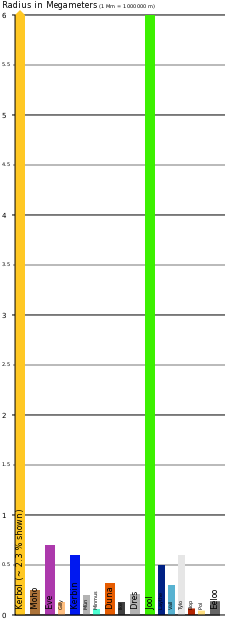Difference between revisions of "Kerbol System"
From Kerbal Space Program Wiki
(→System: *outsource all celestial bodies;) |
m (-comment; -alt (by default == desc); +link to Kerbin/Laythe; *radiuses → radii;) |
||
| Line 1: | Line 1: | ||
| − | [[File:sizes.svg|thumb|Comparision of the | + | [[File:sizes.svg|thumb|Comparision of the radii|upright]] |
| − | The '''Kerbol System''' is at the moment the only available solar system. It has [[Kerbol]] as the central body which is orbited by 5 [[planet]]s and 2 [[Dwarf Planet|dwarf planet]]s. Because the sphere of influence of Kerbol is infinite it is impossible to escape the system. Only Kerbin and Laythe have an oxygen atmosphere and only Kerbin hosts life. | + | The '''Kerbol System''' is at the moment the only available solar system. It has [[Kerbol]] as the central body which is orbited by 5 [[planet]]s and 2 [[Dwarf Planet|dwarf planet]]s. Because the sphere of influence of Kerbol is infinite it is impossible to escape the system. Only [[Kerbin]] and [[Laythe]] have an oxygen atmosphere and only Kerbin hosts life. |
| − | With the outermost dwarf planet [[Eeloo]] it reaches up to 113 | + | With the outermost dwarf planet [[Eeloo]] it reaches up to 113 549 713 200 m (about 113.5 [[w:Gigametre|Gm]] or 0.76 [[w:Astronomical unit|AU]]) out into space. Compared to our solar system it is a very small system, as Earth's periapsis (or more specific perihelion) is about 147 Gm (or 0.98 AU) and thus outside of Eeloo's orbit. |
| − | [[File:kerbol_sizecomp_chart.jpg|thumb | + | [[File:kerbol_sizecomp_chart.jpg|thumb|600px|center|Graphical comparison of the main celestial bodies in the Kerbol System]] |
[[File:orbits.svg|thumb|upright=4.5|Orbits of planets and dwarf planets|center]] | [[File:orbits.svg|thumb|upright=4.5|Orbits of planets and dwarf planets|center]] | ||
== System == | == System == | ||
| − | |||
{{:Kerbol System/Map}} | {{:Kerbol System/Map}} | ||
[[Category:Celestials]] | [[Category:Celestials]] | ||
Revision as of 21:53, 26 May 2013
The Kerbol System is at the moment the only available solar system. It has Kerbol as the central body which is orbited by 5 planets and 2 dwarf planets. Because the sphere of influence of Kerbol is infinite it is impossible to escape the system. Only Kerbin and Laythe have an oxygen atmosphere and only Kerbin hosts life.
With the outermost dwarf planet Eeloo it reaches up to 113 549 713 200 m (about 113.5 Gm or 0.76 AU) out into space. Compared to our solar system it is a very small system, as Earth's periapsis (or more specific perihelion) is about 147 Gm (or 0.98 AU) and thus outside of Eeloo's orbit.
System
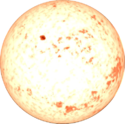 Kerbol Kerbol
| ||||||
 Moho Moho
| ||||||
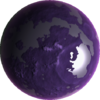 Eve Eve
|
 Gilly Gilly
| |||||
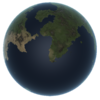 Kerbin Kerbin
|
 Mun Mun
|
 Minmus Minmus
| ||||
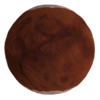 Duna Duna
|
 Ike Ike
| |||||
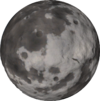 Dres Dres
| ||||||
 Jool Jool
|
 Laythe Laythe
|
 Vall Vall
|
 Tylo Tylo
|
 Bop Bop
|
 Pol Pol
|
|
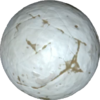 Eeloo Eeloo
| ||||||
| (Sizes and distances not to scale) | ||||||
